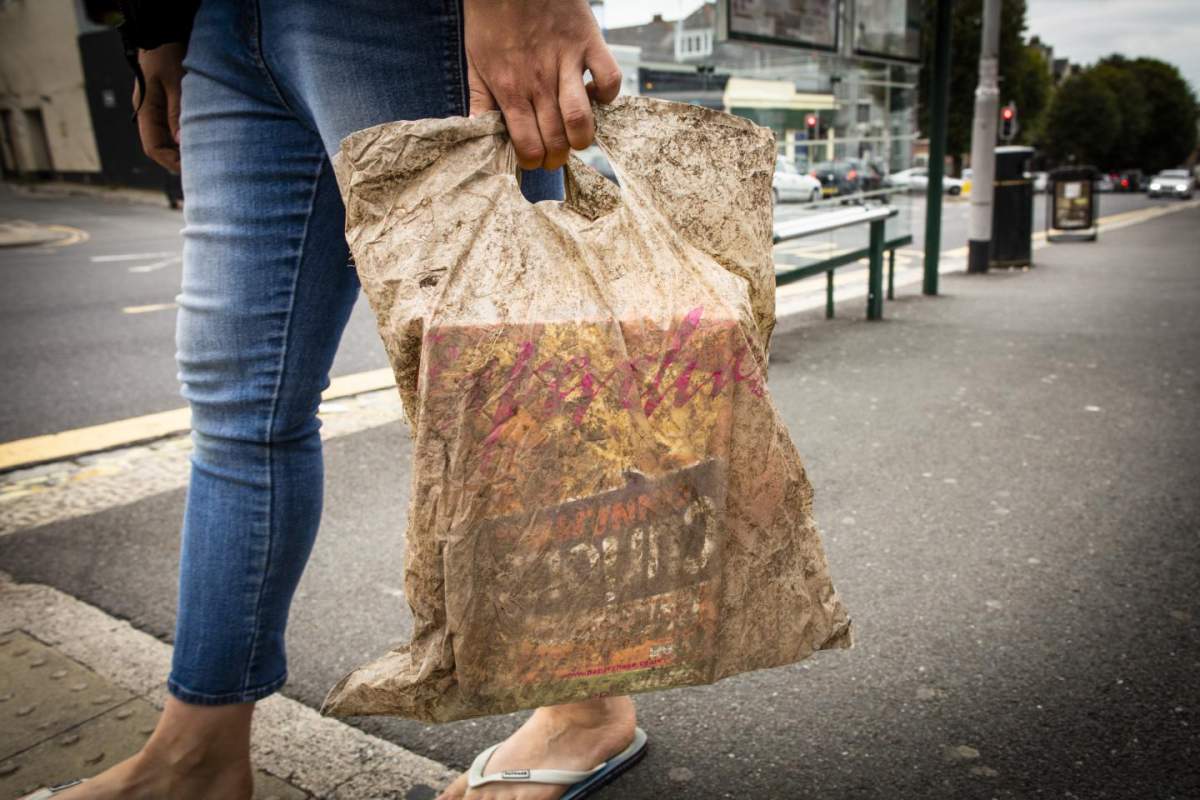Biodegradable and compostable plastic bags are still capable of carrying full loads more than three years after being exposed to the natural environment, a new study has found.

Researchers at the University of Plymouth studied the degradation of five plastic bag materials widely available at retailers in the U.K.
The bags were exposed to environments they could potentially encounter if discarded as litter, including air, soil and the sea.
“The bags were monitored at regular intervals, and deterioration was considered in terms of visible loss in surface area and disintegration as well as assessments of more subtle changes in tensile strength, surface texture and chemical structure,” a news release says.
According to the study, after nine months in the open air, all of the materials had completely disintegrated into fragments.

Get daily National news
However, researchers found the biodegradable, oxo-biodegradable and conventional plastic formulations remained ‘functional as carrier bags’ after being in the soil or the marine environment for more than three years.
The compostable bag completely disappeared from the experimental test rig within three months in the marine environment, but researchers found while it showed some signs of deterioration, it was still present in the soil after 27 months.
WATCH: Montreal banning plastic and biodegradable bags

“After three years, I was really amazed that any of the bags could still hold a load of shopping,” said research fellow Imogen Napper, who led the study as part of her PhD, in a statement.
“For a biodegradable bag to be able to do that was the most surprising. When you see something labelled in that way, I think you automatically assume it will degrade more quickly than conventional bags,” she said. “But after three years, at least, our research shows that might not be the case.”
Professor Richard Thompson OBE, Head of the International Marine Litter Research Unit, says the research raises a number of questions about what the public might expect when they see something labelled as ‘biodegradable.’
“We demonstrate here that the materials tested did not present any consistent, reliable and relevant advantage in the context of marine litter,” he said. “It concerns me that these novel materials also present challenges in recycling.”
He says the study emphasizes the need for standards relating to degradable materials, clearly outlining the appropriate disposal pathway and rates of degradation that can be expected.








Comments
Want to discuss? Please read our Commenting Policy first.